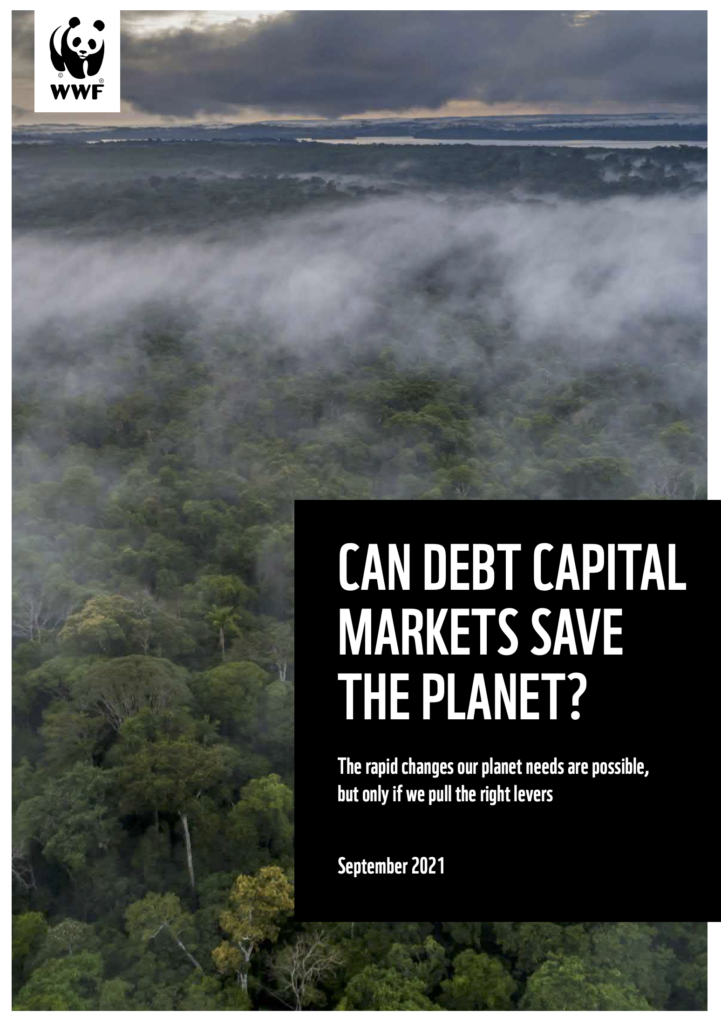A new report by WWF, Can debt capital markets save the planet? reveals that while large international banks make ‘zero carbon’ pledges, their investment banking arms often continue with a business as usual approach, ignoring the environmental impacts of most of the bond deals they arrange or underwrite.
The report lays out the progress made in the last five years in the labelling, definitions, measurement metrics, and issuance of sustainable and green bonds, and emphasizes that those behind these transactions, including market practitioners, financial regulators, supervisors, and central bankers, must build stronger incentives to rapidly reduce financing of significant environmental harm and increase green capital raising efforts. The vast majority of bonds traded on debt capital markets still provide very little, if any, information on their environmental impacts, with only 10% of global bond issuances in 2021 showing specific labeling of their environmental, social or sustainability benefits.
The report also highlights that in the past five years the top 30 investment banks, which play a pivotal role in raising and distributing capital, have facilitated almost US$3.6 trillion in environmentally-harmful fossil fuel debt, earning fees totaling almost twice the amount generated from arranging or underwriting green transactions.
The report argues that global debt capital markets can and must leverage their power to address the environmental challenges of our generation within this critical ‘make-or-break’ decade to 2030. It also highlights that disastrous climate change and the alarming degradation of biodiversity and ecosystems need to be addressed urgently. Through this report, WWF has also identified ‘Rapid Change Levers’ for key stakeholders to pull and points out how rapid change is already happening across their five calls to action.
